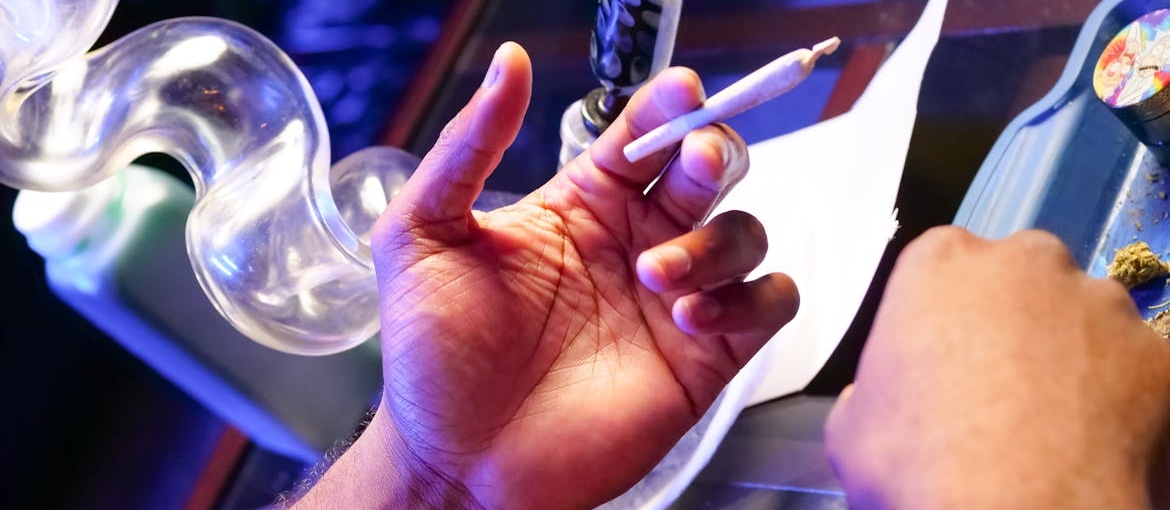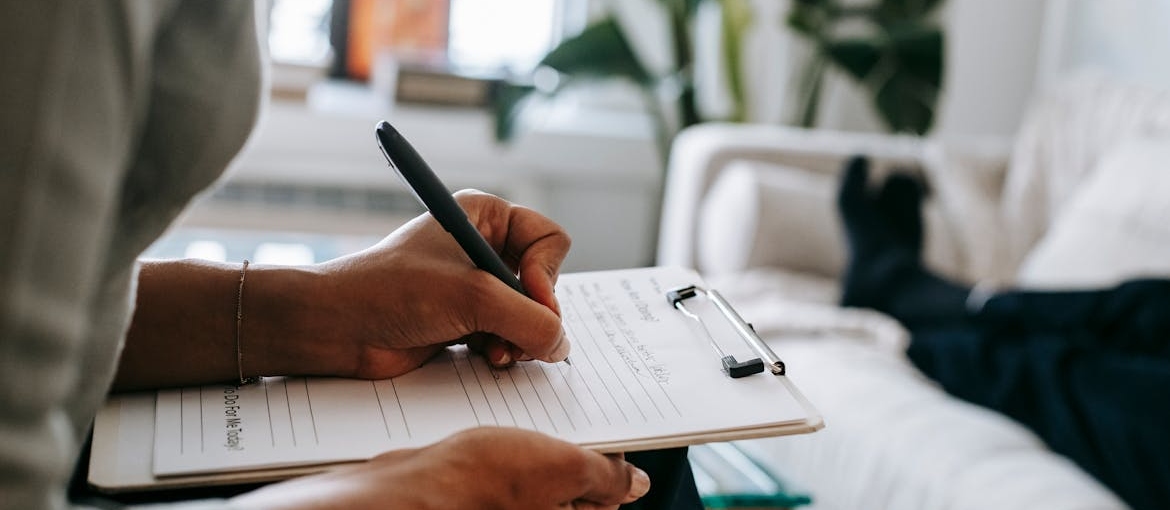Feeling paranoid after using marijuana can be confusing and frightening. You might suddenly feel like everyone is judging you or that something bad will happen. Many people wonder how long does weed paranoia last and why it happens in the first place. For some, it fades quickly. For others, the fear and racing thoughts can last for hours or even longer. These moments can leave you questioning your choices and mental health. It’s okay to feel scared or lost. What matters is finding ways to calm your mind and body safely. If paranoia or anxiety keeps returning, it might be time to reach out for support. Many rehab centers in West Virginia help people manage marijuana use and regain control with care and understanding.
Understanding Weed Paranoia
Paranoia after using marijuana can hit suddenly and feel intense. You might question if people are judging you or if something terrible is about to happen. Many ask, is it normal to feel paranoid after smoking weed? Yes, it can happen, especially with high-THC strains. The brain reacts differently to cannabis depending on stress, environment, and personal sensitivity.

While it usually fades, some people struggle longer and search for ways to calm down. Learning how to get weed out of your system safely can help shorten symptoms and restore balance. Drinking water, sleeping well, and staying away from cannabis for a while give your body time to reset. Once your system clears, paranoia often fades, and your mood and focus begin to stabilize again.
How Long Does Weed Paranoia Last?
Many people panic and ask how long does weed paranoia last because the fear feels endless. Most cases fade within hours, though mental fog or anxiety might last longer. If you keep asking how long does paranoid ideation last, that’s a sign the experience was intense for you. The exact duration depends on how much THC you consumed and how your body reacts. Here’s what influences recovery time:
- Amount used: Higher doses keep symptoms longer.
- THC strength: Stronger strains cause longer-lasting anxiety.
- Frequency of use: Regular use slows recovery.
- Hydration: Water helps your body process THC faster.
- Sleep: Rest allows your brain to reset.
- Mental health: Preexisting anxiety can extend symptoms.
- Environment: Calm surroundings help reduce lingering fear.
The Science Behind Cannabis and Anxiety
THC affects the same part of your brain that controls fear and alertness. For some, this causes relaxation, while for others it triggers panic. When THC levels spike, your brain releases stress hormones that heighten awareness. This overreaction creates racing thoughts and physical tension. Over time, frequent use can make anxiety worse.
Many people wonder, does drug-induced paranoia go away? It usually does once your body readjusts and THC clears your system. However, if anxiety continues, it could signal sensitivity to cannabis or an underlying issue. Therapy can help you understand those triggers and teach coping tools for future use. Balanced habits, moderate doses, and awareness make the biggest difference in avoiding overwhelming episodes in the future.

Coping With Weed Paranoia
When paranoia hits after using marijuana, it can feel like your thoughts are spinning out of control. You may question what’s real, worry others are judging you, or feel trapped in your own mind. Many people ask how long does weed paranoia last because they need reassurance that it will end. Though it often fades, knowing how long does paranoia from weed last can help you plan how to calm yourself. Recovery starts with awareness and patience.
Grounding Techniques to Calm Yourself
When panic sets in, grounding helps bring you back to reality. These simple tools help your mind slow down and your body feel safe again. They don’t erase anxiety instantly, but they make it easier to stay present while symptoms pass:
- Deep breathing: Focus on slow, steady breaths to lower your heart rate.
- Cold sensation: Hold something cold or splash your face with water to refocus your senses.
- Counting objects: Look around and count items to distract racing thoughts.
- Repeating words: Say calming phrases like “I’m safe” to remind yourself that it will pass.
- Movement: Stretch or walk to release tension and reduce overthinking.
- Music: Listen to soft, familiar songs to anchor your emotions.
Lifestyle Changes That Reduce Paranoia
Long-term relief depends on daily habits that keep your mind balanced and your body stable. Making small changes creates a calmer mental state and lowers the chance of future anxiety. Simple, consistent routines can make a big difference:
- Sleep routine: Go to bed and wake up at the same time every day.
- Balanced diet: Eat whole foods that stabilize energy and mood.
- Exercise: Move your body daily to lower stress hormones.
- Mindfulness: Spend a few minutes each morning focusing on your breath.
- Limited THC: Choose lower-THC strains or avoid cannabis altogether.
- Stay hydrated: Drink enough water to help your body recover naturally.

When to Seek Professional Support
Sometimes, paranoia lasts longer than expected. If you still wonder how long does weed paranoia last weeks after quitting, or ask how long does paranoia last after quitting weed, it might be time for help. Ongoing fear or panic can mean your brain needs professional support.
Many people find strength in therapy or programs such as rehab for professionals, where care is private and tailored. Therapists can teach coping strategies, identify anxiety triggers, and help you recover confidence. The goal isn’t just to stop the fear—it’s to understand it and feel safe again. You deserve relief, and reaching out can be the first step toward lasting calm and peace of mind.
Weed Addiction and Dependence
Many people use marijuana to relax, but over time it can become something they rely on daily. The line between casual use and dependency isn’t always clear. You might feel restless or anxious without it and wonder how long does it take for weed anxiety to go away. For some, tolerance builds quickly, leading to more frequent use. Understanding the signs early helps you regain control before it becomes a stronger habit.
How Occasional Use Turns Into Dependency
It often starts with weekend use, then becomes a daily escape from stress. Over time, your brain adjusts and depends on THC to feel balanced. You might crave that sense of calm, even if it fades faster than before. This pattern can quietly grow into dependence. If you notice irritability, poor sleep, or withdrawal after stopping, it may be time to consider help such as barbiturates rehab, where professionals guide recovery safely and confidentially.
Support programs can help you rebuild motivation, restore focus, and reconnect with healthy habits. The goal is to rediscover balance and break free from relying on substances to manage your emotions. You’re not alone—help is available, and recovery is absolutely possible with the right support system.

Psychological vs. Physical Dependence
Addiction isn’t always about physical withdrawal—it’s often mental too. These two forms of dependence affect recovery differently but often appear together:
- Psychological craving: Feeling unable to relax without marijuana.
- Physical discomfort: Headaches, fatigue, or nausea after quitting.
- Emotional attachment: Using weed to manage sadness or boredom.
- Habitual use: Smoking at the same times every day.
- Sleep issues: Trouble falling or staying asleep without THC.
- Irritability: Increased tension when trying to quit.
Treatment Options for Marijuana Use Disorder
When anxiety or dependency continues, professional help can restore balance. Structured programs teach new coping skills and rebuild mental clarity. If you feel trapped in a cycle of use and fear, specialized care can help. One trusted choice is a drug rehab Clarksburg WV trusts, where experts treat marijuana use disorder with therapy, accountability, and care.
Programs combine evidence-based counseling with emotional support to create lasting recovery. You’ll learn healthier ways to manage stress, avoid triggers, and stay grounded without relying on substances. Many people who complete rehab say they finally feel in control again. Recovery isn’t about perfection—it’s about progress, awareness, and learning how to live without constant worry or craving.
Rehab Programs That Treat Marijuana Addiction
When paranoia and dependency feel too heavy to manage alone, structured treatment gives you stability. People who ask how long does weed paranoia last often discover that therapy does more than answer that—it heals what caused the fear in the first place. Recovery programs help rebuild mental clarity, self-esteem, and daily structure. They also teach emotional control, so relapse feels less tempting. Healing begins when you decide you’re ready to change.

What to Expect in Marijuana Rehab
Treatment focuses on rebuilding trust in yourself and learning new coping tools. Programs often include therapy, group sessions, and relapse prevention planning. A major benefit is dialectical behavior therapy for addiction, which helps you manage emotions and stay mindful during stress.
You’ll explore triggers, practice healthier communication, and develop calm thinking patterns. The process feels challenging at first, but every week brings growth. Therapists guide you to reconnect with your values and rebuild confidence. Many find new meaning through structure, connection, and hope.
Benefits of Choosing a Specialized Treatment Center
Choosing the right program can make all the difference. Specialized centers focus on marijuana recovery with trained therapists who understand anxiety, paranoia, and addiction patterns. For example, outpatient cocaine rehab programs also apply similar behavioral approaches to cannabis recovery—allowing flexibility while maintaining structure. These programs fit around daily responsibilities, making recovery accessible to anyone. Specialized rehab means care that’s personal, compassionate, and effective.
Aftercare and Support for Long-Term Sobriety
Finishing rehab is a major achievement, but healing continues afterward. Aftercare programs keep you supported during the early stages of independent recovery. Many offer therapy, peer groups, and check-ins to maintain motivation. Insurance like humana rehab coverage can make this ongoing care easier to access. Staying connected helps prevent relapse and keeps your mental health steady. Over time, confidence replaces fear, and you start feeling grounded again.

Preventing Future Paranoia Episodes
Once you’ve experienced paranoia, it’s natural to want to prevent it from happening again. The first step is to know your limits and track what triggers you. Many people keep asking how long does weed paranoia last because the fear leaves a strong impression. Staying mindful during use helps you notice early warning signs.
If you feel uneasy, take a break and breathe deeply. Low-THC strains, good sleep, and stress management all reduce risk. If you’re asking how long does it take for weed anxiety to go away, recovery often depends on your habits and mindset. Giving your body time to recover before using again matters. Over time, you’ll learn how to control your response, stay calm, and protect your mental well-being.
Start Your Recovery Journey Today
Paranoia caused by marijuana can leave you tense, alert, and exhausted. You might keep asking yourself how long does weed paranoia last, hoping for it to end soon. For most people, it fades once the effects wear off, but sometimes it lingers. When it does, it can affect sleep, focus, and peace of mind. You don’t have to deal with that alone. Talking to a therapist or joining a support program can make recovery easier. Treatment helps you understand what triggers paranoia and how to prevent it in the future. It’s okay to ask for help and take your time to heal. Every step toward feeling calm again matters. Recovery starts with reaching out and finding the right support for your needs.



